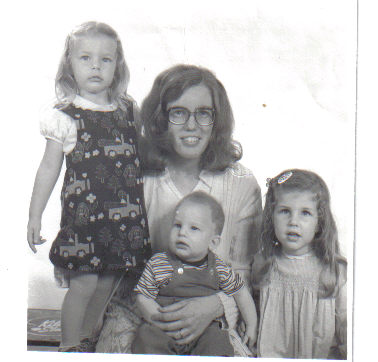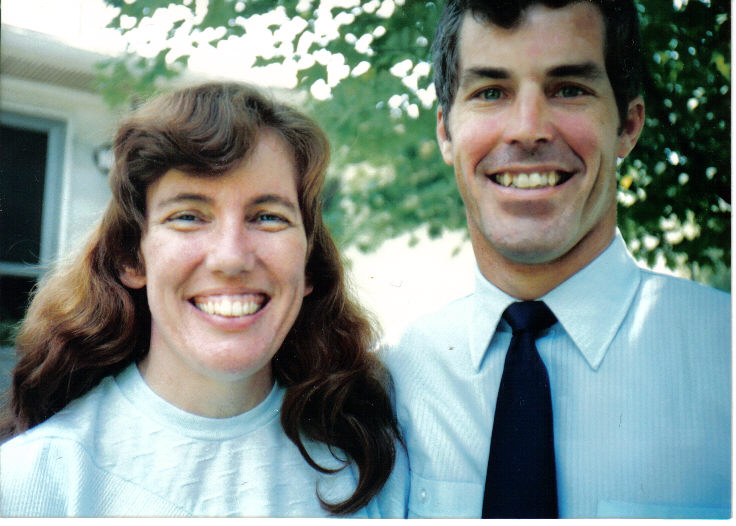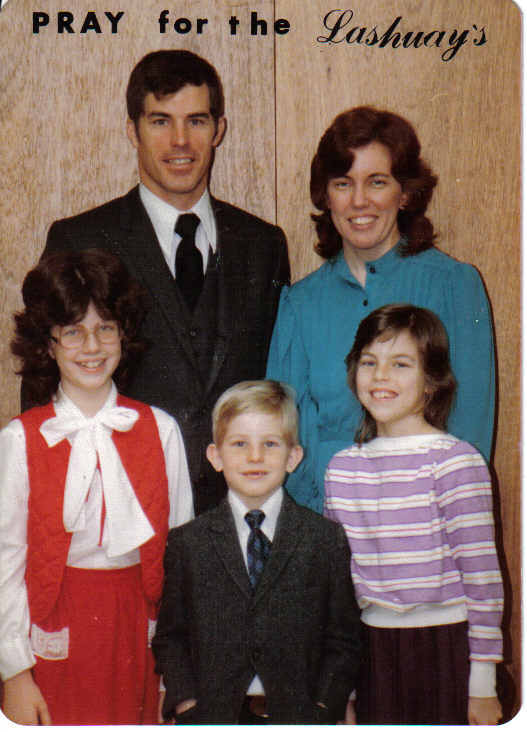
The Christmas season is once again upon us. The hustle and bustle of last-minute preparations, presents and planning seem to monopolize our time. Yet as I sit and ponder both the reality and meaning of this season, I wonder if we have fallen into the trap of the busyness and gift-giving, that we have forgotten what makes this season so great. I’m not against giving gifts and planning our gatherings with friends and family, frankly I love these aspects of this season. But I would like to take a moment, in between the phone calls, keystrokes and internet searches to direct our minds toward “the Gift”—the Greatest Gift ever given in the history of mankind.
Unfortunately, in many ways, Christmas has been hijacked by some reindeer who supposedly can fly, pulling a sleigh filled with presents to be delivered to every “good” child in the world, in one evening, being driven by a jolly old man, who clearly has had one too many cookies, dressed in a red suit, who slides down chimneys to deliver presents even in homes with no chimneys. Quite a believable story, right?!
Somehow, in many homes, this story has replaced the story of the birth of the Child born in Bethlehem 2000 years ago. The story of the Greatest Gift ever given. The story of grace and mercy, hope and love. The story of humility and sacrifice. The story of the God of heaven looking down upon His creation and sending His Son to be the Gift of life to a lost and dying world. This amazing story is the story of Christmas. It is the story of the cradle and the cross.
“Cradle” and “Cross” — What do these words mean to you? A cradle brings memories to parents of the early days with their children. Memories of anticipation of “what this child will become” among the sleepless nights and delirious questioning of my own abilities as a parent handling this great responsibility. The cradle is a picture of innocence and expectation. The cross, on the other hand, brings to mind pain and suffering, torture and death.
How can these two words be brought together especially in the context of Christmas? Truth be told, the greatest story the world has ever known is wrapped up in these words, of innocence and expectation, of pain and suffering, torture and death.
These two words, when boiled down reveal a profound contrast yet powerful and life-giving reality. The cradle is a picture of new life while the cross is a picture of death. As we consider the cradle and the cross, we see the true reason for this Christmas season—it is all about CHRIST.
The story unfolds as the angel Gabriel comes to Mary, a virgin engaged to a man named Joseph.
And the angel said unto her, “Fear not, Mary: for thou hast found favor with God. And, behold, thou shalt conceive in thy womb, and bring forth a Son, and shalt call His name JESUS. He shall be great, and shall be called the Son of the Highest: and the Lord God shall give unto Him the throne of His father David: and He shall reign over the house of Jacob forever; and of His kingdom there shall be no end. ”—Luke 1:30-33
Talk about anticipation and the weight of responsibility this announcement brings. Yet Mary humbly responds as a willing servant, saying, “Behold the handmaid of the Lord; be it unto me according to thy word” (Luke 1:38).
Next, we find Joseph struggling with the news of his pregnant fiancé and what he should do.
But while he thought on these things, behold, the angel of the Lord appeared unto him in a dream, saying, “Joseph, thou son of David, fear not to take unto thee Mary thy wife: for that which is conceived in her is of the Holy Ghost. And she [Mary] shall bring forth a Son, and thou shalt call His name JESUS: for He shall save His people from their sins.”—Matthew 1:20-21
I remember back to those days as I was anticipating the birth of our first child. The thoughts of this soon-coming responsibility of fatherhood, at times, were heavy and oppressive. I can only imagine what went through Joseph’s mind as he hears this announcement. I’m sure to some degree, this put Joseph’s mind at ease, yet he too has just received a heavenly announcement, filled with anticipation, being weighted down with the greatest responsibility—“I will be raising the One who will save His people from their sins?” But yet, without delay, he obediently took these steps of faith.
In the second chapter of Luke, additional characters are brought into this narrative. The anticipation finally reaches a crescendo with the birth of this Child, followed by more angels, this time singing and praising God, making a heavenly announcement of the birth of the Lamb of God to some lowly shepherds.
And the angel said unto them, “Fear not: for, behold, I bring you good tidings of great joy, which shall be to all people. For unto you is born this day in the city of David a Saviour, which is Christ the Lord. And this shall be a sign unto you; ye shall find the Babe wrapped in swaddling clothes, lying in a manger. And they came with haste, and found Mary, and Joseph, and the babe lying in a manger.”—Luke 2:10-12
The cradle is the focus of the first act in this Christmas narrative while in the second act the curtain opens revealing the purpose for this cradle as the cross takes centerstage.
One of my favorite Christmas hymns was written by Ron Hamilton titled, “Born to Die.” The message of the third verse with the chorus sums up the message of the Cradle and Cross.
From His throne Jesus came, laid aside Heaven’s fame
In exchange for the cross of Calvary;
For my gain suffered loss, for my sin He bore the cross—
He was wounded and I was set free.
Born to die upon Calvary, Jesus suffered my sin to forgive;
Born to die upon Calvary, He was wounded that I might live.
In these words we see the cradle and the cross. The cross cast its shadow over the cradle as Jesus was born and laid in the manger. This was the purpose for which Christ was born—He was born to die. Remember the angel’s words to Joseph, “And [Mary] shall bring forth a Son, and thou shalt call His name JESUS: for He shall save His people from their sins”?
Jesus was born so that He could die. This sounds quite depressing as far as stories go. Clearly this wasn’t written for any awards or block-buster movie deals. Up until this point it captivates our attention. It is filled with twists and turns that make for a good story yet at this point many choose to disembark this story train—Jesus was born so that He could die! See, if the story ended here then I would agree but give it a chance, keep on reading and see how this story is for you. The great reality is that Christ’s death was not the stories’ end but a pivotal moment within the narrative of Christ’s provision for our salvation. It was part of the process of securing our salvation. The cross is empty and so is the tomb as it could not hold Him. Christ has conquered death and has risen from the grave, just as He said He would (Matthew 16:21).
The purpose for which Christ came to this earth was to die, to pay the penalty for our sin—which He did. BUT then He rose again the third day, claiming victory over death leaving the tomb empty as evidence of a risen, living Savior.
Don’t overlook the journey from the cradle to the cross. Stop and look upon the empty cross and see all the suffering Christ bore on your behalf. Then keep going from that tree to the tomb. Again, stop and look inside and see Him there no more and rejoice for He lives! But there is more…continue on from the grave to the glorious mount as He ascended, returning to the Father.
From the cradle to the cross we see how Christ lived as a perfect Example and He died as a perfect Sacrifice. In that He triumphs over the tomb, we see that He lives as a conquering King and He saves as a perfect SAVIOR.
Remember that there is a Christ in CHRISTmas for a reason. HE is the REASON for this season. Celebrate HIM as the Greatest Gift ever given. “For God so loved the world, that He gave His only begotten Son [Jesus], that whosoever believeth in Him should not perish, but have everlasting life” (John 3:16). Because of Christ’s death on the cross, we can enjoy the cradle of a new birth in Christ—a life with Christ that never ends—a life with Him here on this earth and in heaven for eternity.
Do you have a relationship with Christ? Have you received this Greatest Gift that is eternal life? Consider Christ’s words to a religious man searching for answers about life. Jesus answered and said unto him, “Verily, verily, I say unto thee, Except a man be born again [from above], he cannot see the kingdom of God.” (John 3:3) The Bible says elsewhere, “For by grace are ye saved through faith; and that not of yourselves: it is the gift of God: not of works, lest any man should boast.” (Ephesians 2:8-9)
Have you responded to Christ when He says, “Come unto Me, all ye that labor and are heavy laden, and I will give you rest [peace]” (Matthew 11:28). Christ’s invitation demands a response. “For whosoever shall call upon the name of the Lord shall be saved.” (Romans 10:13) “But as many as received Him [JESUS], to them gave He power to become the sons of God, even to them that believe on His name:” (John 1:12)
If you haven’t placed your faith and trust in CHRIST alone for salvation won’t you consider doing that today? This Christmas enjoy the Greatest Gift ever given—His name is JESUS. He will never fail you for in Him alone is contentment, peace, joy, and love that truly transcends all understanding. In Him alone is true life that never ends.
Join with me this Christmas season and make JESUS the center—put CHRIST at the center of your CHRISTmas.
For more information, consider reading “How do I get to heaven?” and
“God Loves You!”














